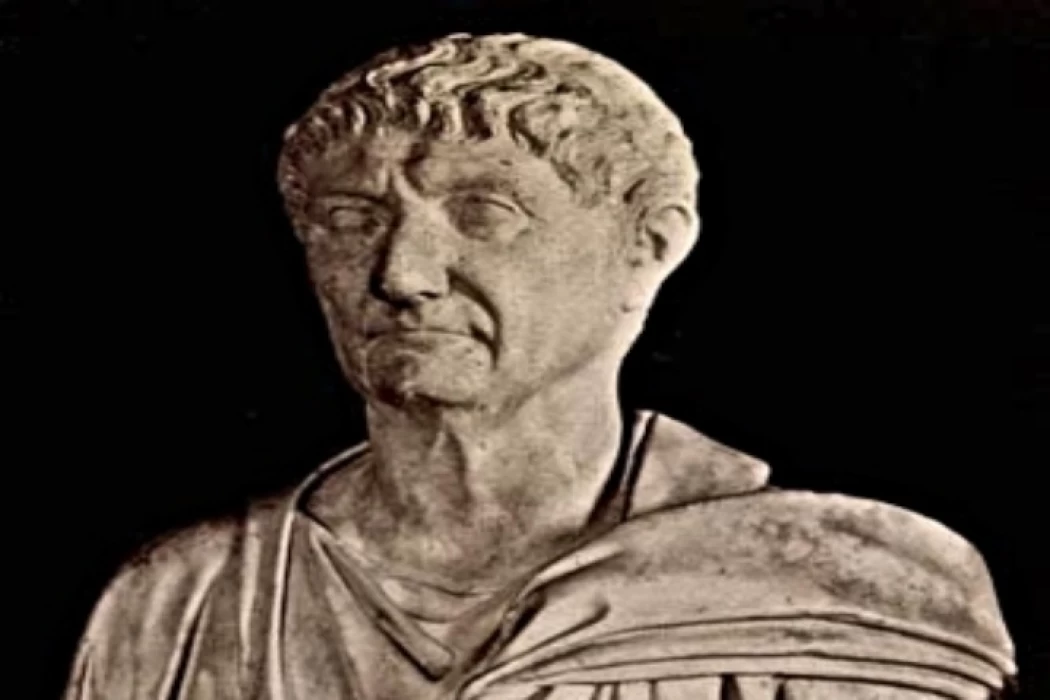
The Emperor Diocletian The Roman
Diocletian (Latin: Gaius Aurelius Valerius Diocletianus) (Greek: Γάιος Αυρήλιος βαλόριος Διοκλητιανός) (Gaius Aurelius Valerius Diocletian) (December 22, 242/245 - December 3, 311/312) was the Roman emperor from 284 to 305.
Diocletian separated and expanded the Empire's civil and military services and reorganized the Empire's administrative divisions, establishing the largest and most bureaucratic government in the history of the Roman Empire. During his reign, new administrative centers were established in Nicomedia, Mediolanum, Sirmium, and Trierforum, and it is noticeable that these centers are closer to the borders than the traditional capital of Rome. Based on the trend of the third century towards autocracy, he established himself as an autocrat, placing himself above the commoners and imposing his authority on them. The growth of bureaucratic institutions, the increase in military campaigns, and massive construction projects caused an increase in state expenditures and necessitated this tax reform. From at least 297 onwards, the tax system was standardized, made fairer, and levied at higher rates. Not all of Diocletian's plans were crowned with success. for example, the decree on maximum prices (301 AD), the purpose of this decree was to reduce inflation by controlling prices, it was counterproductive and soon failed. Although the tetrarchy was effective when he was emperor but it collapsed after he abdicated due to the rivalry between Constantine and Maxentius. They were the sons of Constantine and Maximian. His persecution of Christianity, which was the largest and last wave of persecution of Christianity in the Roman Empire, failed to be eliminated. After 324, Christianity became the preferred religion of the Empire during the reign of Constantine. Despite the failure of some of his schemes, Diocletian's reforms changed the Empire administratively and organizationally, helped to stabilize the Empire economically and militarily, and prolonged the life of the Empire, although it almost collapsed in his youth. Diocletian abdicated the imperial throne due to illness on May 1, 305, becoming the first Roman emperor to abdicate voluntarily.
Numerian's death
Carus died in the course of his war against the Persians under mysterious circumstances. Carinus hurried to Rome from his post in Gaul as an imperial legate and arrived there in January 284, becoming emperor in the West. While Numerian remained in the East. The Roman withdrawal from the lands of the Sasanian state was organized. The Sasanian king Bahram II was unable to hunt them down because he was busy suppressing internal revolts. Numerian was apparently in good health in Homs, where the only legal document named after him was issued, but after he left, his entourage noticed that his eyes were sore, and since then, he has been traveling in a closed vehicle. And when the army arrived in Bithynia, the soldiers noticed a strange smell coming from the wagon. When they opened it, they found Numerian dead. Both Aurelius Victor and Eutropius called Numerian's death an assassination.
Abeer officially revealed the news at Nicomedia (Izmir) in November. The leaders of the Numerian warlords called a session to consider his succession, at which Dughels was chosen as Emperor, despite Abir's attempts to attract personal support. On the twentieth of November 284, the Eastern Army met on a hill 5 kilometres (3.1 Mi) outside Nicomedia. The army unanimously saluted Douglas as the new Augustus when he accepted the purple Imperial robe. And in full he is, Gaius Valerius Diocletianus (Gaius Valerius Diocletianus).
His attitude to Christianity and Christians Diocletian was keen for most of the years of his reign to follow a policy of religious tolerance with Christians, and then his policy turned against Christians at the end of his reign, Diocletian issued four decrees between the years 302-305 ad urging the persecution of Christians, these decrees witnessed the burning of Bibles and religious books, preventing Christians from gathering, demolishing churches, killing more than a thousand Christians, prohibiting any prayers or religious rituals, killing all Christian clergy and confiscating all church property, and this persecution ended at the hands of King Constantine and called the era of persecution the era of martyrs. In March 303, he issued two successive publications imprisoning and torturing the heads of churches to force them to leave their religion.
The retirement of Diocletian and Maximian rule. On the first of May in 305 AD, Diocletian and Maximian abdicated the throne, that is, two years after the date of issuing their first orders. Constantine was raised at the court of Diocletian and fled to Britain, where he was named Emperor of Gaul, Spain, and Britain in 306 AD, succeeding his father. He crossed the Alps and defeated his rival Maxentius, son of Maximianus, Diocletian's partner in ruling the West, at the arch of Melphia, one mile from Rome, and this killed Maxentius and his army in the waters of the Tiber River in October 312 AD.














